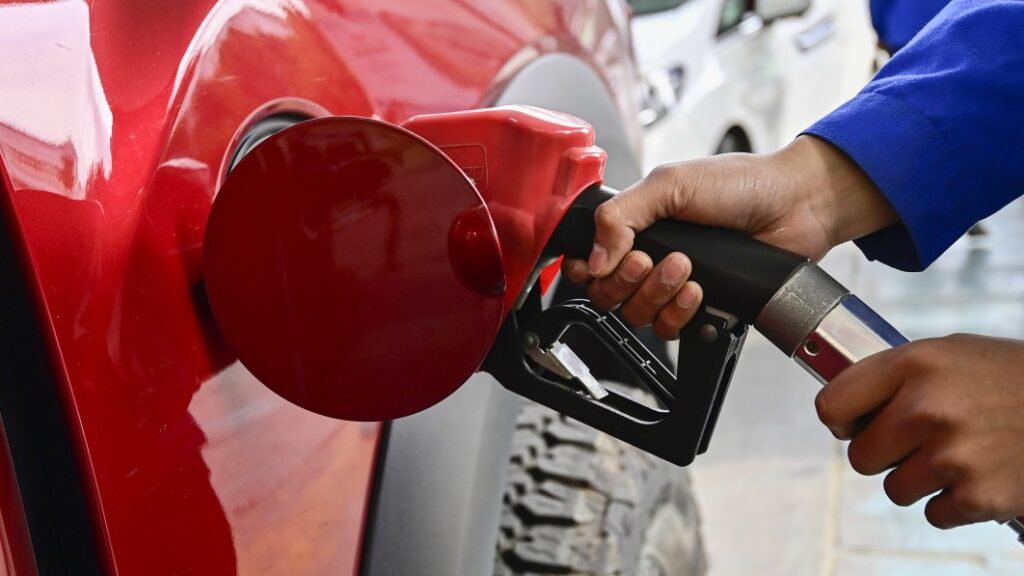Study tries to assess average driver's fuel cost over a lifetime

The site Go Banking Rates (GBR) attempted to figure out how much the average American driver spends on gas, per state, over the course of that driver’s decades behind the wheel. Considering the methodology, it’s probably best to look at this as a financial relationship between states regarding projected current outlay or how much drivers in each state drive on average. We’ve already got questions about what’s happening in Wyoming.
First here’s how GBR got the numbers it fed into the equation, all sourced from either government data or the American Automobile Association (AAA). It gives the average American a 61-year driving career, from 16 to 77, that number multiplied by average yearly driven miles per state. Car-wise, the average vehicle has a 13.4-gallon gas tank and gets 24.4 miles per gallon, going 329.4 gallons on a full tank. Take the average resident’s annual mileage per state, divide that by the distance traveled on a full tank, that gives the necessary number times the driver has to fill the tank every year. Since the fixed tank size is 13.4 gallons, multiply the number of full tanks by 13.4 for the required number of gallons annually, then multiply that by the average price of a gallon of gas in a state. Then multiply that by 61. Voila, large numbers.
Using easy numbers, say a driver does 12,000 miles per year in a particular state and gets 300 miles out of every tank, that’s 40 full tanks every year. Say the tank size is 15 gallons, multiply that by 40 tanks, that’s 600 gallons. If the average price of gas in this fictional state is $3 per gallon, that’s $1,800 per year. Multiply 1,800 by 61 years of driving to get $109,800 over the course of this fictional driver’s life. The unexpected finding about this easy setup is that, according to GBR numbers, $109,800 would be the sixth-cheapest lifetime cost of gas for a U.S. resident, above Pennsylvania ($108,670), below New Jersey ($110,735).
We aren’t clear on the specific pages where GBR got some of its numbers, such as the average tank size and average fuel economy. Of the 25 best-selling vehicles last year that have fuel tanks — so, not counting Tesla — the smallest tank size award goes to the Toyota Corolla Hybrid at 11.3 gallons, rising to 13.2 gallons for a standard model. Last year’s DOE report on 2022-model-year vehicles claimed 26.4 mpg on average for all new light-duty vehicles.
And forget about averaging the price of gas over 61 years; the average nationwide price of a gallon of gas in 1963 was 32 cents. While it’s true the U.S. Bureau of Labor Statistics says that $0.32 in 1963 is equivalent to $3.29 in today’s money, those are very different prices. Forget about getting the same mileage out of every tank, too. And diesel drivers get no seat at this table.
What is constant is that Wyoming residents drive huge miles on average every year, so that state leads the table for the average cost of gas over a lifetime at $201,698, beating California at No. 2 by a gargantuan $34,000. Based on government data, average vehicle miles traveled (VMT) per capita in Wyoming in 2011 was 16,272 miles, beating Alaska residents by almost 3,000 miles per year. In 2014, Wyoming folk did 16,410 miles per year on average, beating Georgia residents by more than 3,500 miles. Three years later, Wyoming dwellers were up to 16,900 miles per year, by 2019, it was more than 24,000 miles per year. The top 10 states for lifetime gas price in the study were:
Wyoming: $201,698.22
California: $167,226.71
Nevada: $158,450.88
Georgia: $158,176.59
New Mexico: $156,656.37
Head over to Go Banking Rates for the rest of the list.







